
by Gideon Marcus
April Fool's
Some days, I just have to wonder.
This month saw sad times across our country. Last week, a massive earthquake rocked Alaska and devastated the city of Anchorage.

In Jacksonville, Florida, riots broke out in response to segregation and injustice, quickly turning violent and destructive.
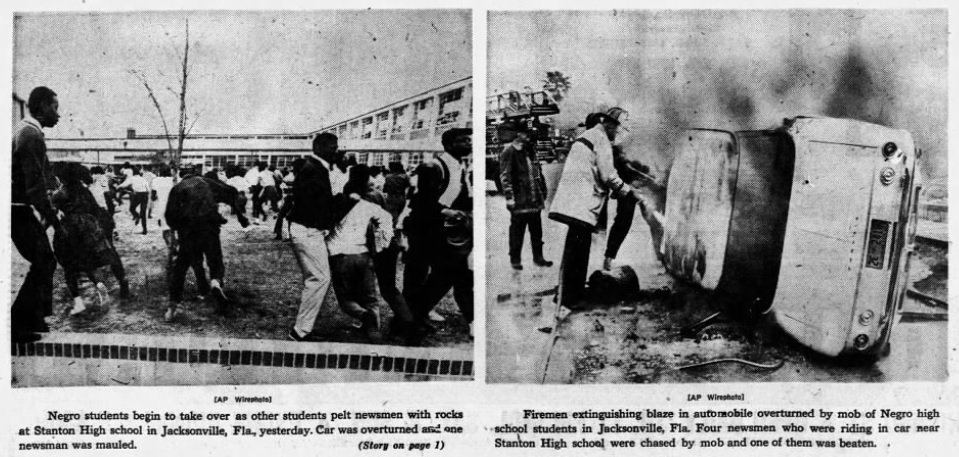
Famed character actor, Peter Lorre, died at 59.

Of course, it's not all bad news. The Civil Rights Bill is steaming through the Senate despite threats of filibuster.

And in genre news, it looks like IF is going monthly.
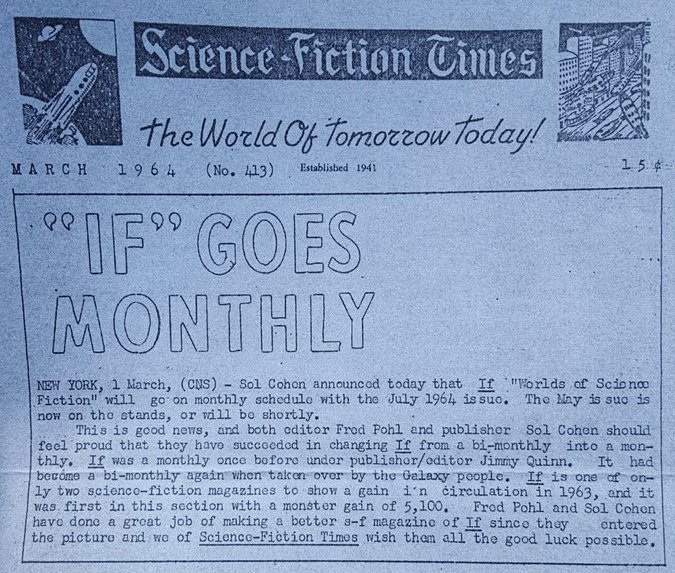
But in general, it's been kind of a lousy month. This applies to the science fiction I've read this month, too — take a look at the latest Analog and you'll see what I mean.
The Issue at Hand
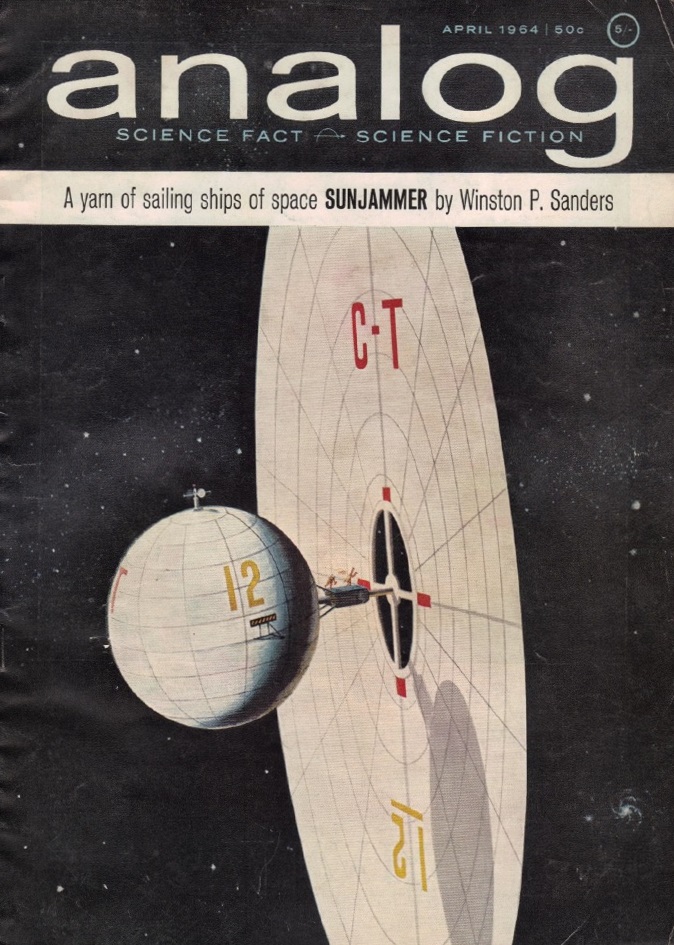
Illustration of Sunjammer by Harvey Woolhiser
The Extinction of Species, by Bert Kempers
Our nonfiction article for this month is a bit atypical. In it, Kempers talks about prominent animal species that have ceased to be due to the existence of humanity. Whether we hunted them for food or eradicated their habitats, the passenger pigeon, the dodo, the smilodon, the mammoth, etc. are no longer with us. And other creatures like the American bison and the California condor are on their way out.

Food for thought. Three stars.
Sunjammer, by Winston P. Sanders
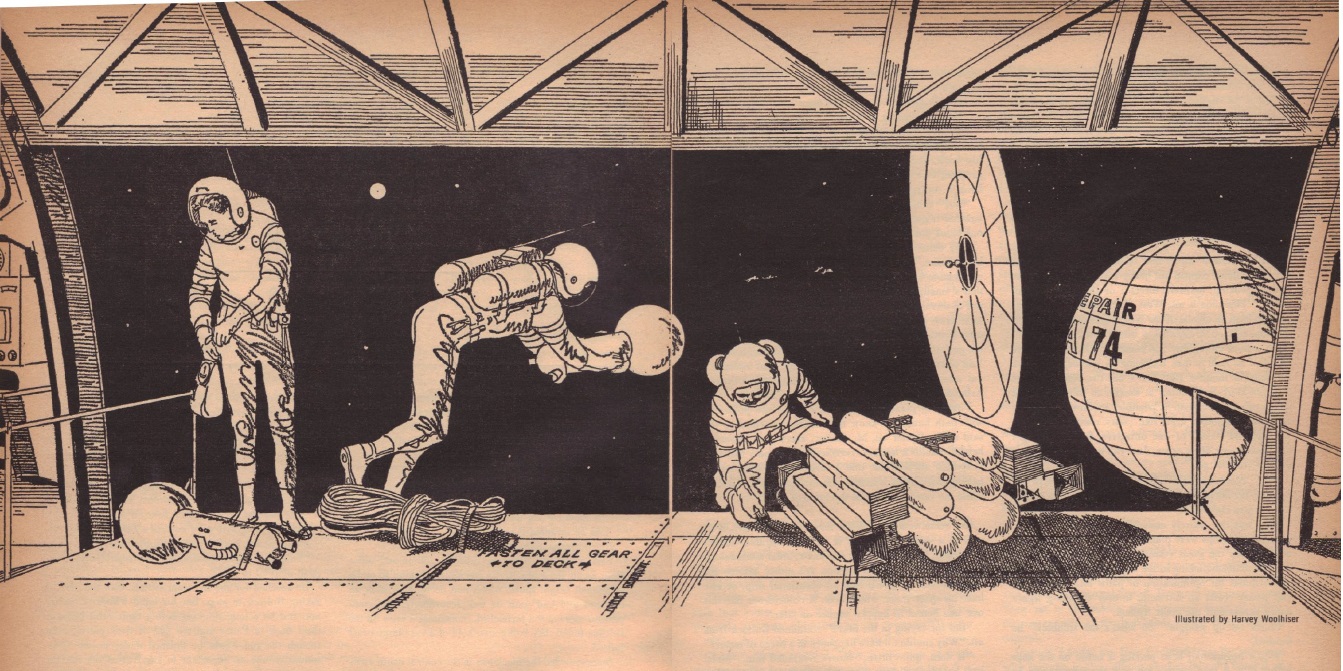
"Winston Sanders," a.k.a. Poul Anderson, is back with another tale of the mid-future. This time, he's left the recently freed asteroid belt and the gas-miners of Jupiter to give us a yarn about uncrewed solar sailship #128, making a leisurely trip with a cargo of radioactive volatiles. Thanks to an unexpected solar flare, the vessel is about to explode; if this happens, all of near-Earth space will be contaminated for years. It is up to the crew of the Merlin to intercept the #128 and somehow keep its cargo hold from popping.
Like the other stories in this series, Sunjammer is long on technical details and short on character development. Still, it's mildly entertaining, and the universe "Sanders" plays in is interesting.
Three stars.
Problem Child, by Arthur Porges
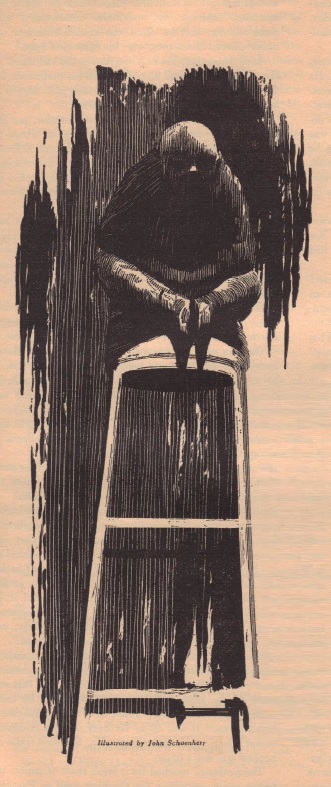
I liked this vignette, about a mathematician's "idiot" son who turns out to be far more. We've had a lot of tales about autistic children of late. I wondered what triggered the boom.
Three stars.
Shortsite, by Leigh Richmond and Walt Richmond
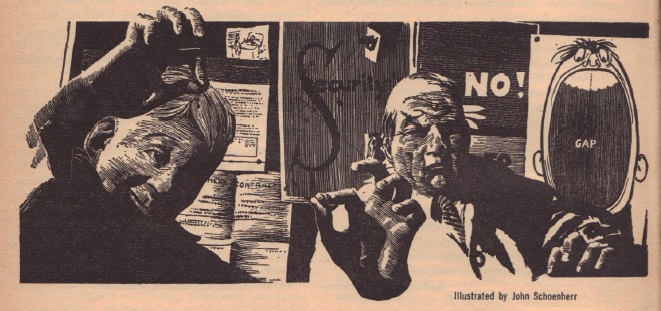
The Richmonds have yet another tiny tale, this one about an inventor with talent for creation but none for marketing, who develops the first room-temperature superconductor. Editor Campbell loves these tales about lone wolf geniuses who are unappreciated by society. This one was too clearly written to his tastes.
Two stars.
Counter Foil, by George O. Smith
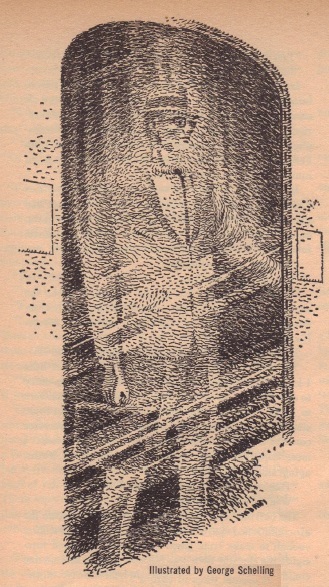
Goodness, this one goes on. Its setup is not unlike Lloyd Biggle's All the Colors of Darkness, where teleportation has become the preferred mode of travel. This time, instead of aliens disrupting our daily commute, it's a pregnant woman who delivers her baby in transit.
This intriguing plot is lost in the endless, needless padding — it's a three page story expanded several fold. You'll slog through the thing just to get to the problem's resolution, and then you'll feel cheated.
Two stars.
The Spy, by Mario Brand

Ever wonder where cats go when they disappear for the night, only to return bedraggled but satisfied the next morning? Turns out that they are interstellar spies, zipped from Earth to a million light years away so that their memories can be probed by inquisitive aliens.
It's a great premise, but Brand does nothing with it.
Two stars.
(great art by John Schoenherr, though, who may well get my vote for Best Artist this year)
Spaceman (Part 2 of 2), by Murray Leinster
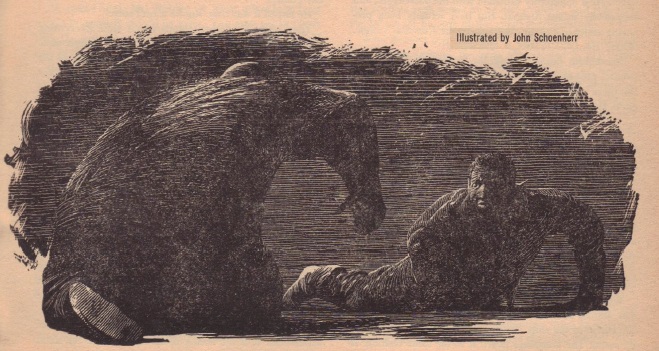
Last up is the resolution of Leinster's novel, begun last month. The Rim Star, an enormous cargo ship designed to transport an entire starship landing facility to a colony, has been taken over by its enlisted crew of six criminals. Only the skipper and first officer Braden can prevent the destruction of the vessel and its five passengers, a film crew that bought passage hoping to get footage for a space-based movie.
While the mutineers have the advantage in weapons, Braden has the power of position, having seized the central drive station and secreted the passengers inside. There, through slick cinematography and control of the ship's viewscreens, the team convinces the bad guys that the Rim Star has entered The Other Side of Space, a realm in which the laws of the universe no longer apply, and no escape is possible. The ruse reduces the spacejackers to terrified catatonia, and the ship safely completes its mission.
Once again, we have a serviceable plot made mediocre thanks to extension. What could have been a tidy novella, the kind the author is quite good at, is twice as long as it should be. Leinster repeats what we already know again and again, using short, declarative sentences that dissipate any momentum the story might have built up. I could also have done without Braden's disdain toward the capable producer, Diane, though that was only a minor irritation.
Upon completion, I was left with the same sense of dismayed regret I feel when I see a dented and spilled can of food at the supermarket: something perfectly good has been ruined and has to be thrown away…
Two stars for this installment, two and a half for the whole serial.
View from a Height

Punching the numbers into Journeyvac, I find that the April 1964 Analog scored just 2.4 stars and had no stand-out stories. Amazing was a similar disappointment, clocking in at 2.6 (though you may find Phyllis Gottlieb's ongoing serial worth the cover price). Fantasy and Science Fiction, while it did have Traven's interesting Central American creation myth, got the worst score: 2.3. Fantastic only got 2.7 stars, but it did contain Ursula K. LeGuin's story, The Rule of Names, which I liked pretty well. The last (?) issue of New Worlds went out with a muffled pop with a crop of three star stories. Only Galaxy (3.3 stars) impressed, with what looks to be the first half of a novel by Cordwainer Smith and the excellent Final Encounter by Harry Harrison.
We had a whopping 4.5 woman-penned stories (out of 38) this month. But as for outstanding fiction, pickings were slim aside from the pieces described above.
Ha ha. The joke's on us. Here's hoping for a happier month ahead.
[Come commiserate with us at Portal 55, Galactic Journey's real-time lounge! Talk about your favorite SFF, chat with the Traveler and co., relax, sit a spell…]

![[Apr. 2, 1964] The Joke's on me (the uninspiring April 1964 <i>Analog</i>)](https://galacticjourney.org/wp-content/uploads/2019/04/640402cover-672x372.jpg)

![[March 27, 1964] The End of an Era? Not With a Bang…. ( <i>New Worlds, April 1964</i>)](https://galacticjourney.org/wp-content/uploads/2019/03/640327cover-409x372.jpg)

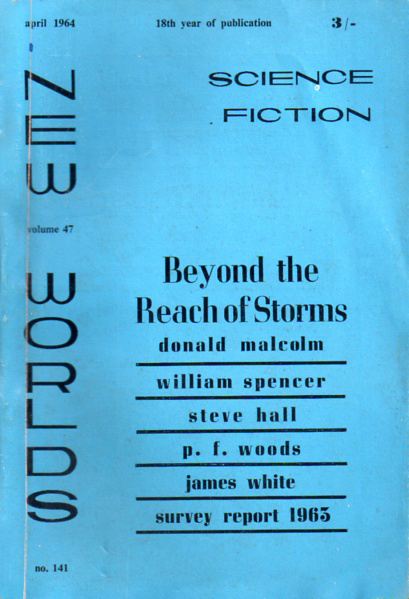
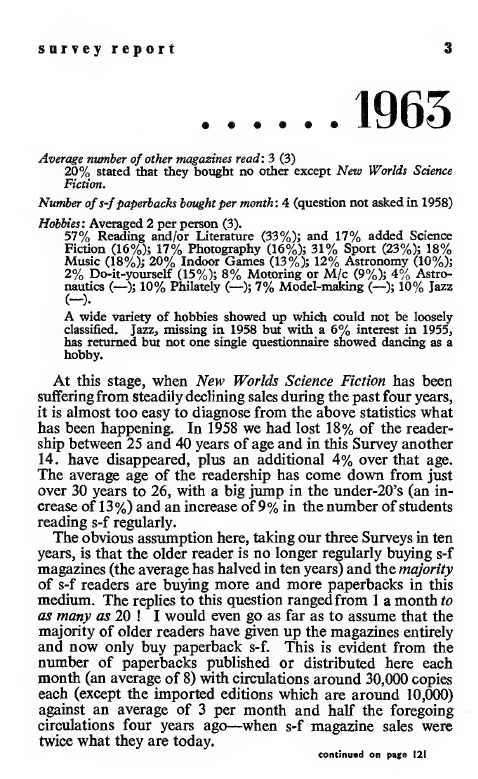
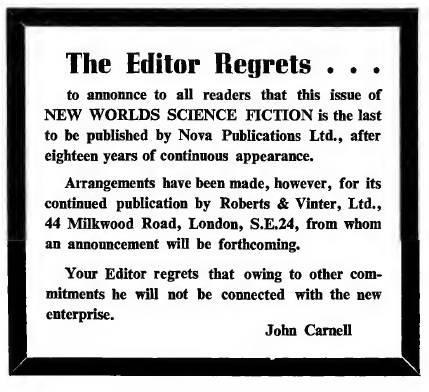
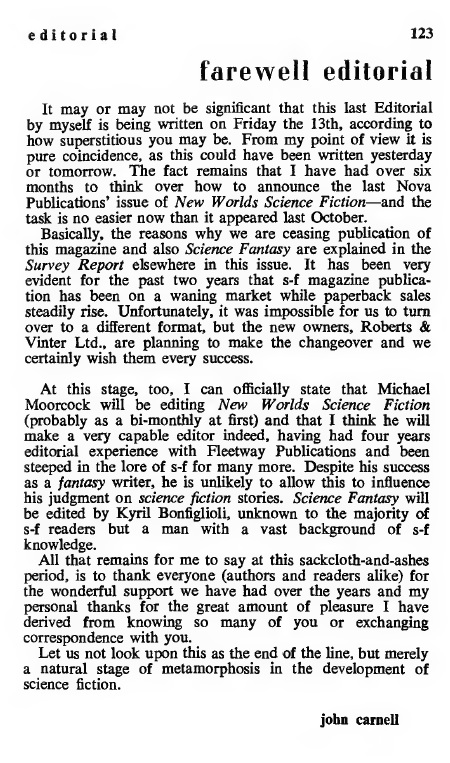
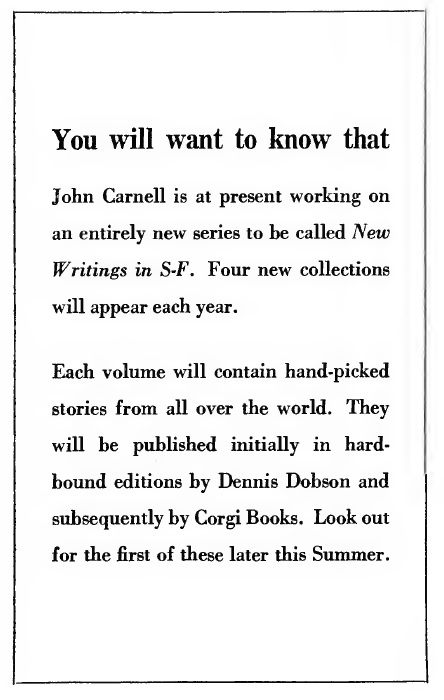
![[March 23, 1964] What's New? Not Much (April 1964 <i>Fantastic</i>)](https://galacticjourney.org/wp-content/uploads/2019/03/640323cover-496x372.jpg)

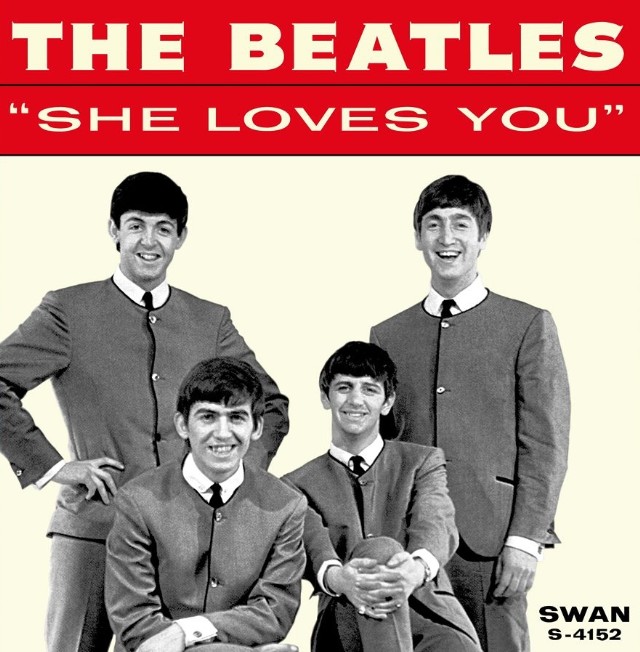







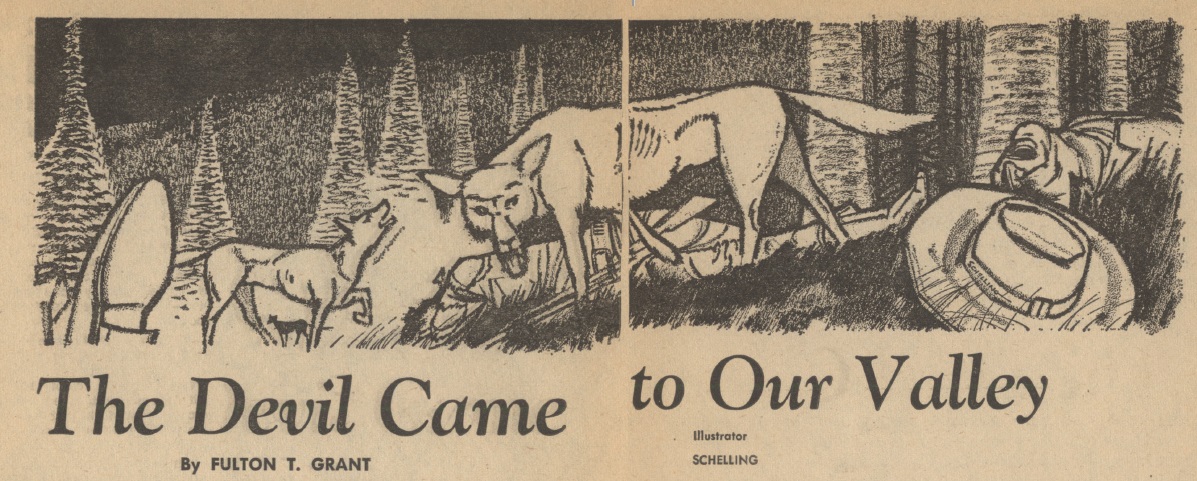
![[March 17, 1964] It's all Downhill(April 1964 <i>Fantasy and Science Fiction</i>)](https://galacticjourney.org/wp-content/uploads/2019/03/640317cover-667x372.jpg)







![[March 13, 1964] NOTHING MUCH TO SAY (the April 1964 <i>Amazing</i>)](https://galacticjourney.org/wp-content/uploads/2019/03/640313cover-672x372.jpg)

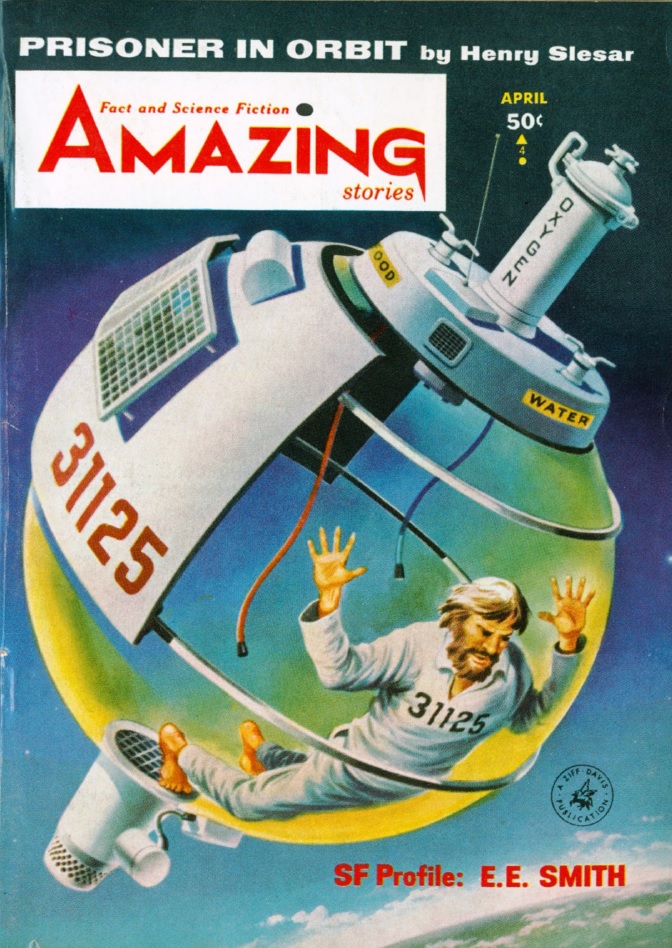
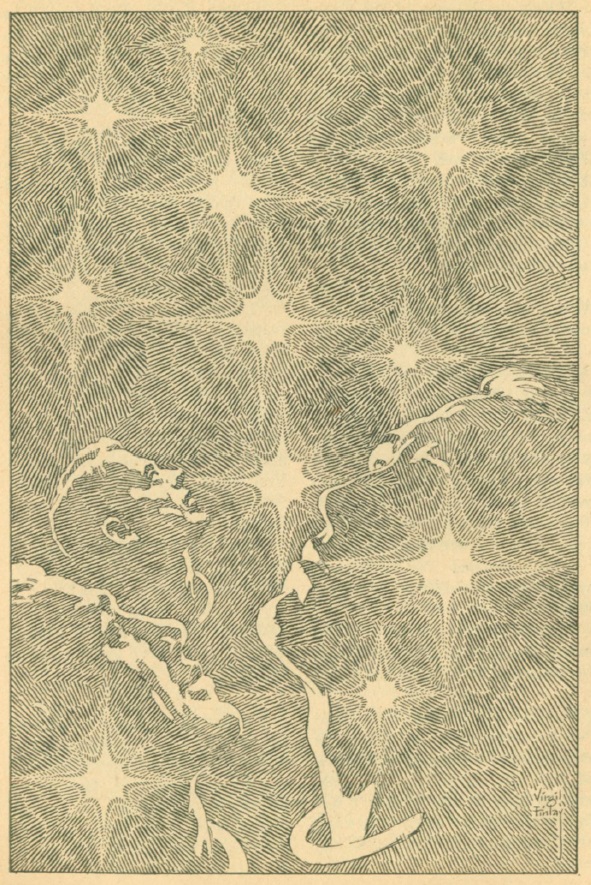
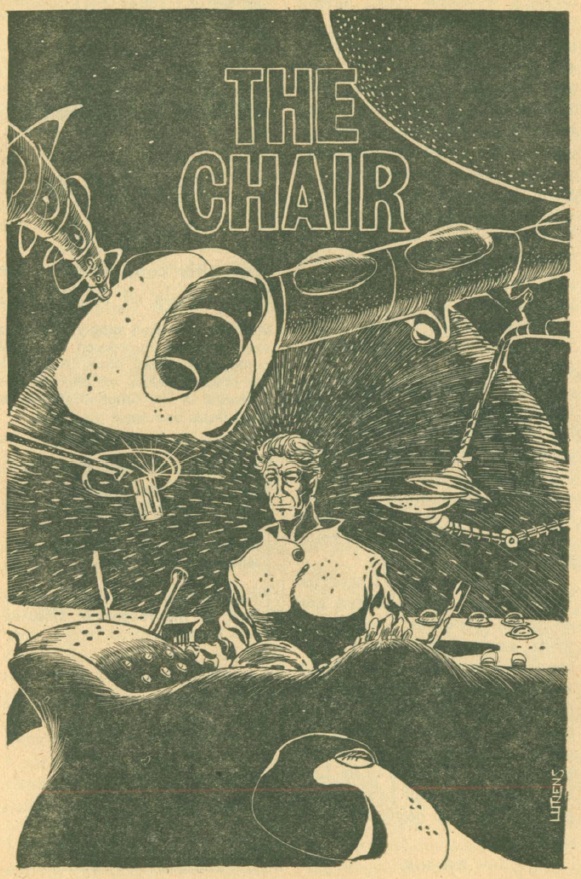
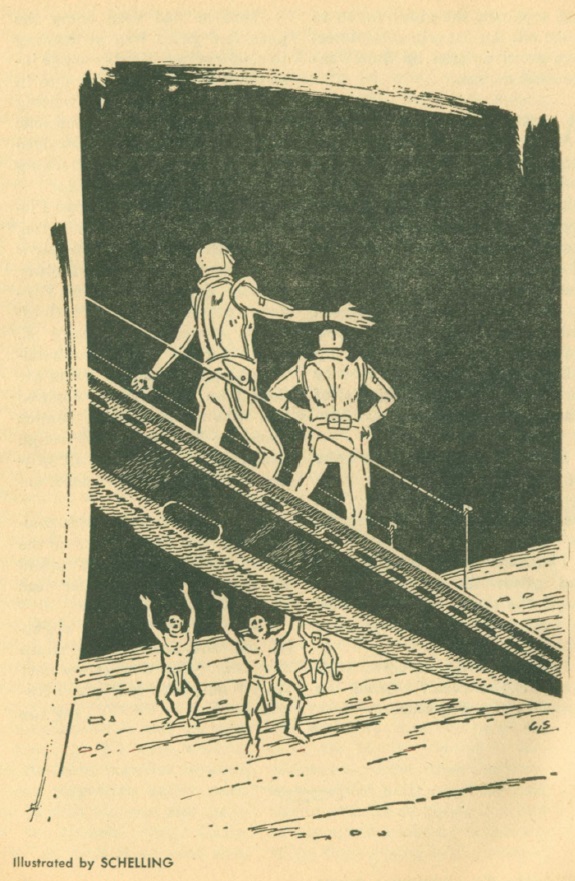
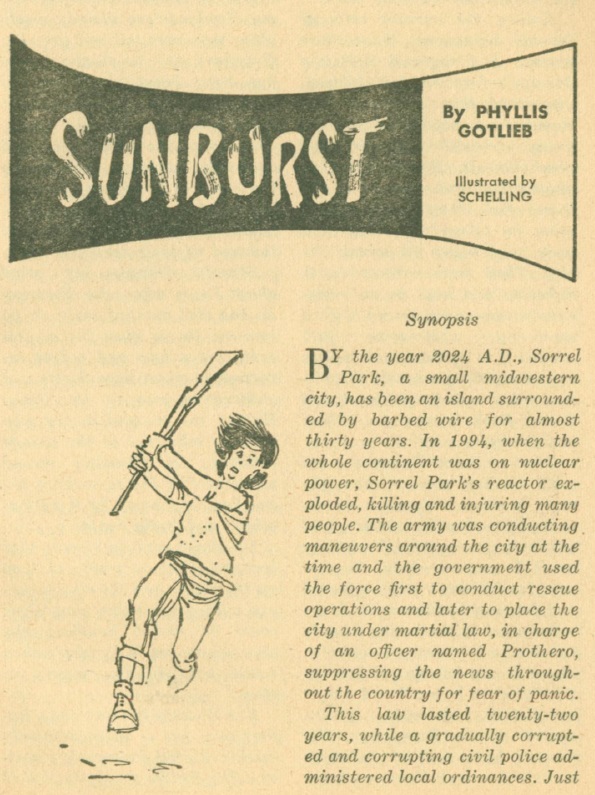
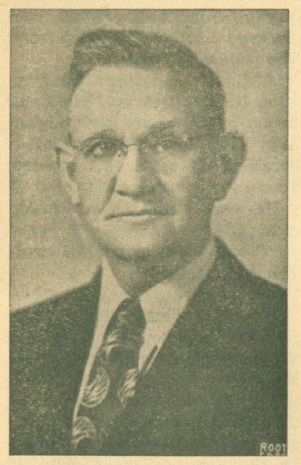
![[March 9, 1964] Deviant from the Norm (April 1964 <i>Galaxy</i>)](https://galacticjourney.org/wp-content/uploads/2019/03/640309cover-672x372.jpg)















![[March 3, 1964] Out and about (March 1964 <i>Analog</i>)](https://galacticjourney.org/wp-content/uploads/2019/03/640303cover-460x372.jpg)

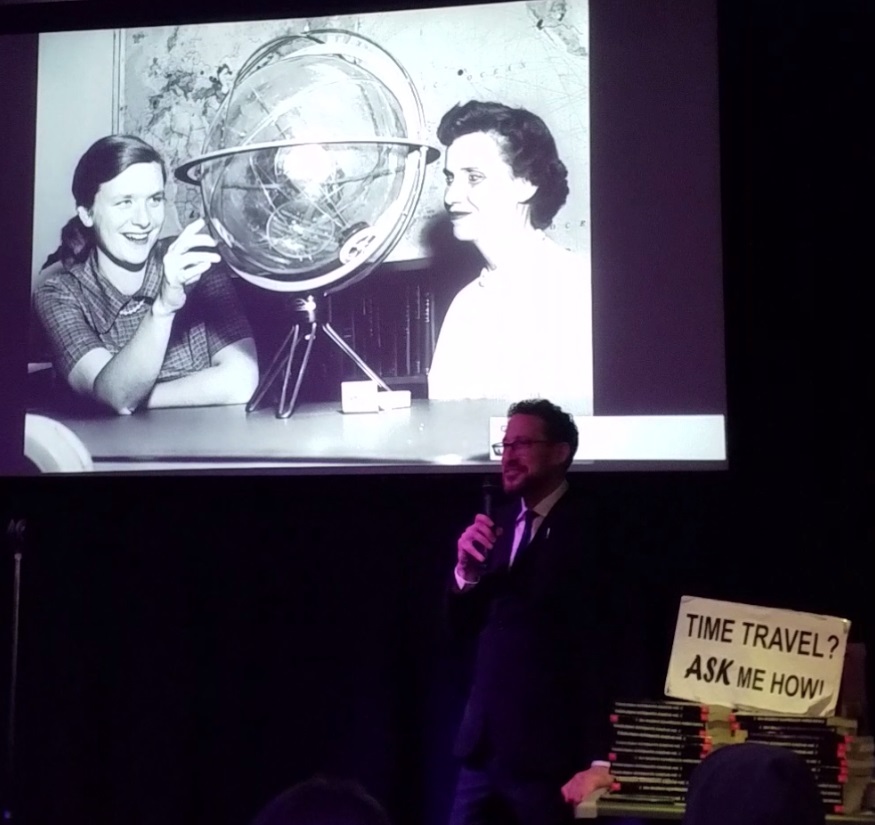
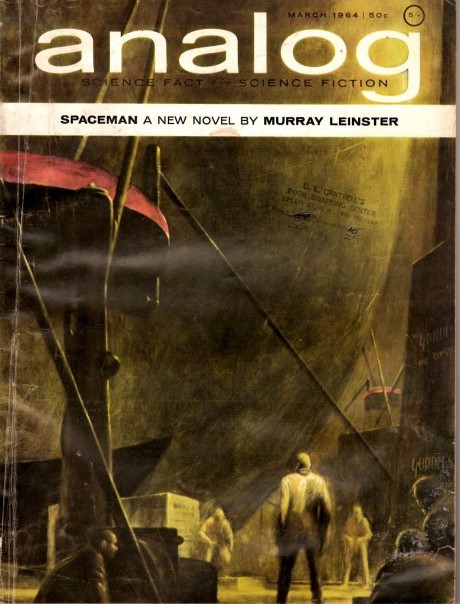
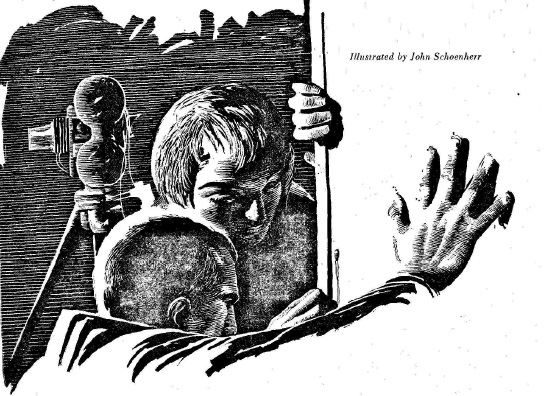
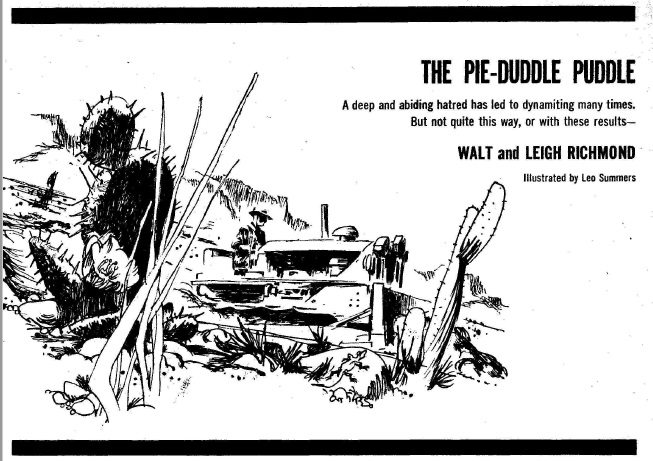
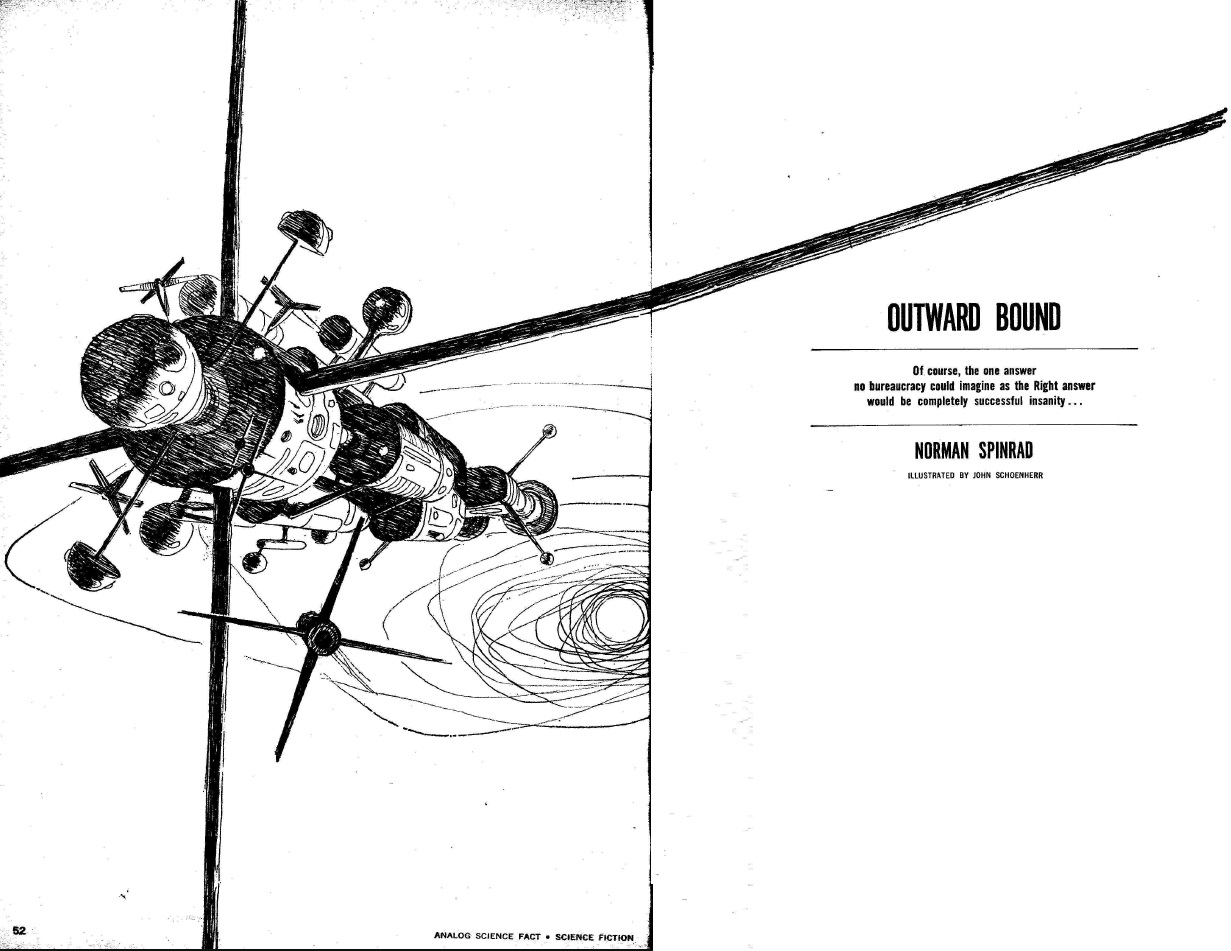
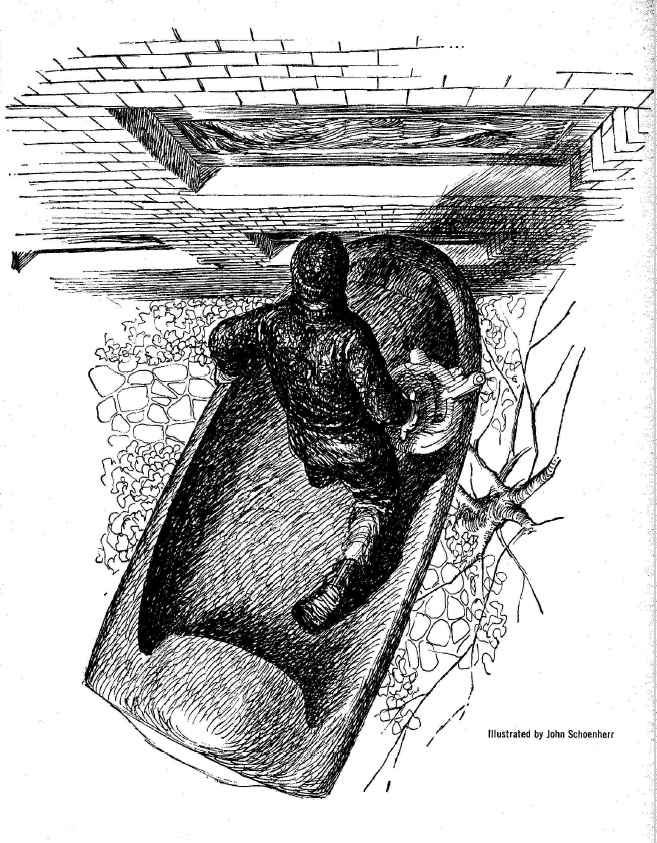

![[February 27, 1964] Beatles, Boredom and Ballard ( <i>New Worlds, March 1964</i>)](https://galacticjourney.org/wp-content/uploads/2019/02/640227cover-649x372.jpg)




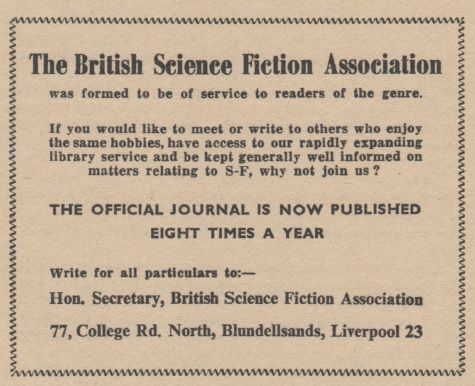


![[February 23, 1964] Songs of Innocence and of Experience (March 1964 <i>Fantastic</i>)](https://galacticjourney.org/wp-content/uploads/2019/02/640223cover-672x372.jpg)









![[February 21, 1964] For the fans (March 1964 <i>Fantasy and Science Fiction</i>)](https://galacticjourney.org/wp-content/uploads/2019/02/640219cover-665x372.jpg)

